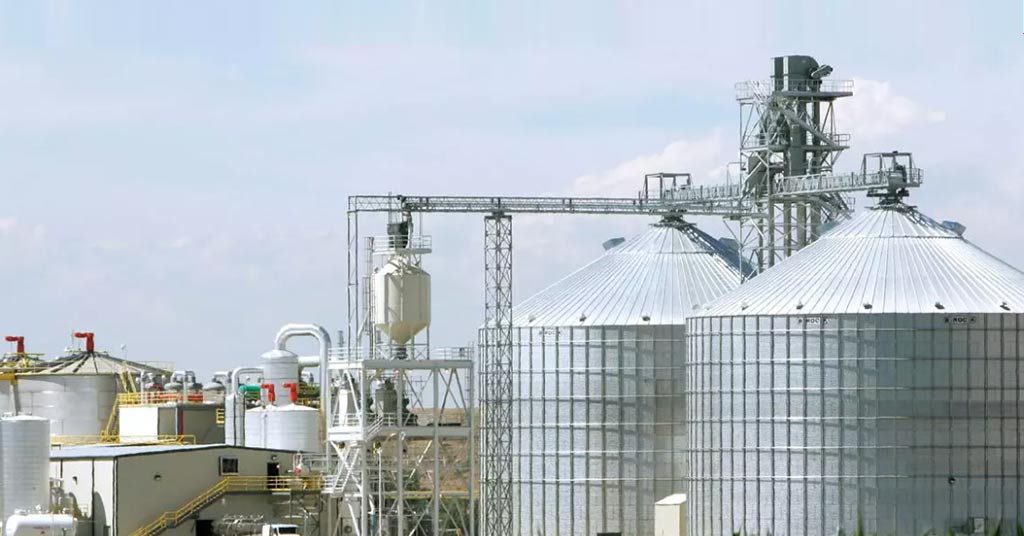Welcome To ChemAnalyst

US: Located in northwest Illinois, the Adkins Energy facility produces approximately 175,000 metric tons of Carbon dioxide daily, which is equivalent to the emissions from 38,000 vehicles. The facility uses Corn to create Ethanol, which has been considered a renewable energy source for a long time. However, the plant is exploring ways to enhance its sustainability efforts by implementing a pilot project that will convert all the CO2 produced into green Methanol, a highly sought-after renewable fuel. The success of this pilot project and other Carbon capture initiatives, including controversial CO2 pipelines, is enabled by federal tax credits worth up to $100 billion over the course of a decade.
In August 2022, President Joe Biden signed the Inflation Reduction Act, which includes a host of new tax credits aimed at incentivizing Americans to adopt cleaner energy practices, such as buying electric vehicles and installing solar panels. Additionally, the act provides uncapped tax credits to promote Carbon capture projects, including the capture of CO2 emissions, to mitigate the worst impacts of climate change. The U.S. Department of Energy's Deputy Assistant Secretary for Carbon Management, Noah Deich, has noted that this is an important step in achieving the administration's goal of reaching net-zero emissions by 2050, meaning that Carbon emissions are offset by measures that remove Carbon from the atmosphere.
The U.S. government has introduced Carbon tax credits to incentivize industries to adopt climate-friendly practices, offering potentially billions of dollars in funding for solutions that reduce Carbon emissions. One such program is 45Q, which provides tax credits for the collection and storage of CO2 underground. The Inflation Reduction Act has recently increased the value of these credits to up to $85 per metric ton of CO2 and made it possible for companies to receive direct payments rather than tax credits. While initial estimates suggested the expanded program would cost $3.2 billion through 2031, a more recent analysis by the Brookings Institution predicts the program's costs will balloon through 2033 due to the new rules and more lucrative benefits now available.
Corn fermentation is a relatively cleaner source of CO2 emissions compared to other manufacturing processes, making Ethanol an attractive option for Carbon capture. Summit Carbon Solutions has put forward a proposal in 2021 to gather CO2 from Ethanol plants located across the Midwest and transport it via pipeline to North Dakota, where the compressed gas would be permanently stored underground. Currently, Summit, along with Navigator and Wolf Carbon Solutions, are seeking permits to construct pipelines that would cross Iowa, Illinois, Minnesota, South Dakota, North Dakota, and Nebraska to collect CO2 from over 50 Ethanol and fertilizer plants.
The three initiatives have encountered strong opposition from environmental groups and landowners due to concerns regarding safety, compulsory easements, and the appropriateness of CO2 pipelines as a solution to counter climate change. Steve Ellis, the president of Taxpayers for Common Sense, remarked that the 45Q tax credit has become exceedingly generous, while the minimum amount of CO2 required to be sequestered has been reduced such that the cost of the program may outweigh the reduction in greenhouse gases. Another tax credit, referred to as 45Z, offers up to $1 per gallon to produce clean transportation fuels; however, the Internal Revenue Service is still clarifying how facilities can receive these funds. As a result, some developers, including pipeline companies that are mainly interested in 45Q, are taking a closer look at the 45Z program.
The 45Z program offers a profitable opportunity to companies like Adkins Energy, which can make money by monetizing the CO2 they collect rather than simply burying it underground. Despite its plant's location, which is not on any of the proposed CO2 pipeline routes, Jeff Bonar, the CEO of New York-based CapCO2 Solutions, approached Adkins Energy's CEO, Brad Howell, earlier this year. Bonar pitched the idea of CO2 capture at Ethanol plants and combining it with renewable energy-produced Hydrogen to create green Methanol, a fuel that the shipping industry is using to replace diesel. Maersk, the Danish shipping company, has stated its need for 6 million tons of green Methanol every year to meet its greenhouse gas emissions target by 2030, and additional Methanol will be required to achieve net-zero emissions by 2040.
According to Brad Howell, Adkins Energy and CapCO2 Solutions may qualify for 45V tax credits for creating renewable energy-produced Hydrogen. All the energy utilized by Adkins Energy is procured from a nuclear power plant situated in Byron, Illinois. However, there is still much collaboration needed between Adkins Energy and CapCO2 Solutions, including determining how to share the tax credits. If everything goes according to plan, a pilot program could start as early as next year. Despite the availability of tax credits, capturing CO2 would not be financially viable unless there is a demand for the low-Carbon fuels produced, said Howell. The market for low-Carbon fuels has been shaped by government and shareholder pressure to reduce greenhouse gas emissions, resulting in a need for sustainable aviation fuel and green Methanol fuels.
As electric and Ethanol-powered cars become more prevalent, the Ethanol industry has recognized the significance of Carbon capture to maintain its relevance. A study conducted by the Iowa Renewable Fuels Association indicated that 75% of Iowa's Ethanol plants would become obsolete without the pipelines. However, the tax credits offer a chance for Ethanol plants not only to survive but also to expand and diversify. 45Z as a game-changer for the industry in March. On the other hand, some people oppose the development of resource-intensive industries. Almost half of the Corn produced in the United States is utilized for Ethanol production, and concerns have already arisen about soil erosion and fertilizer runoff due to limited crop rotations.
We use cookies to deliver the best possible experience on our website. To learn more, visit our Privacy Policy. By continuing to use this site or by closing this box, you consent to our use of cookies. More info.
